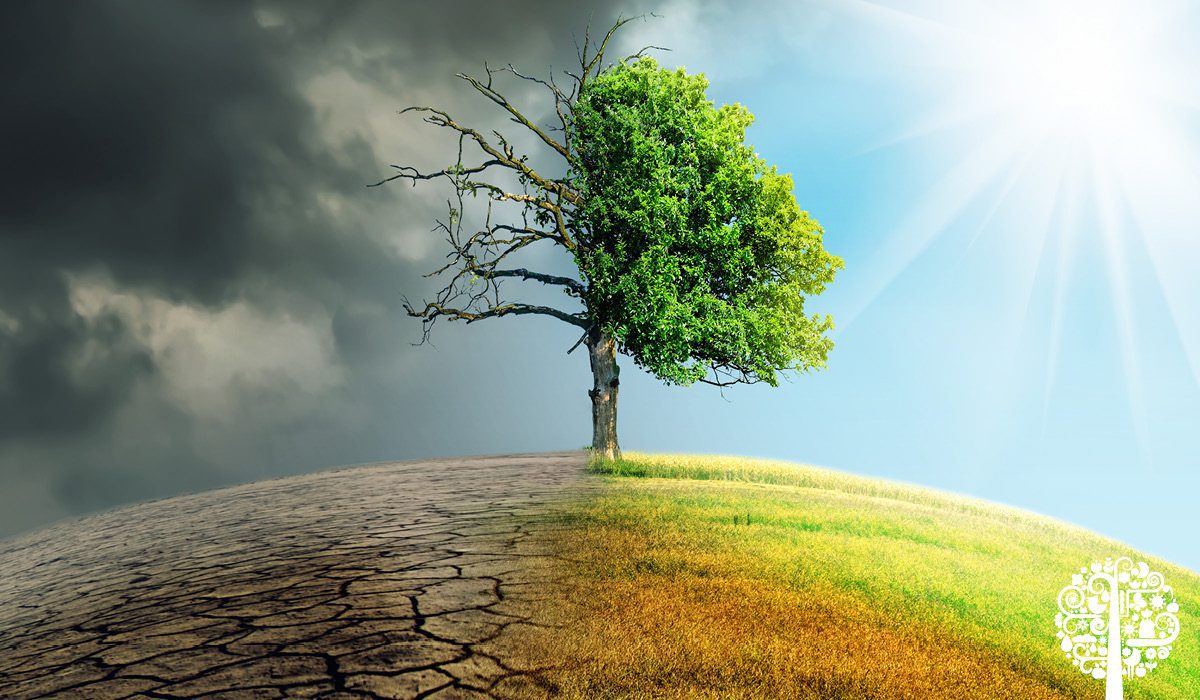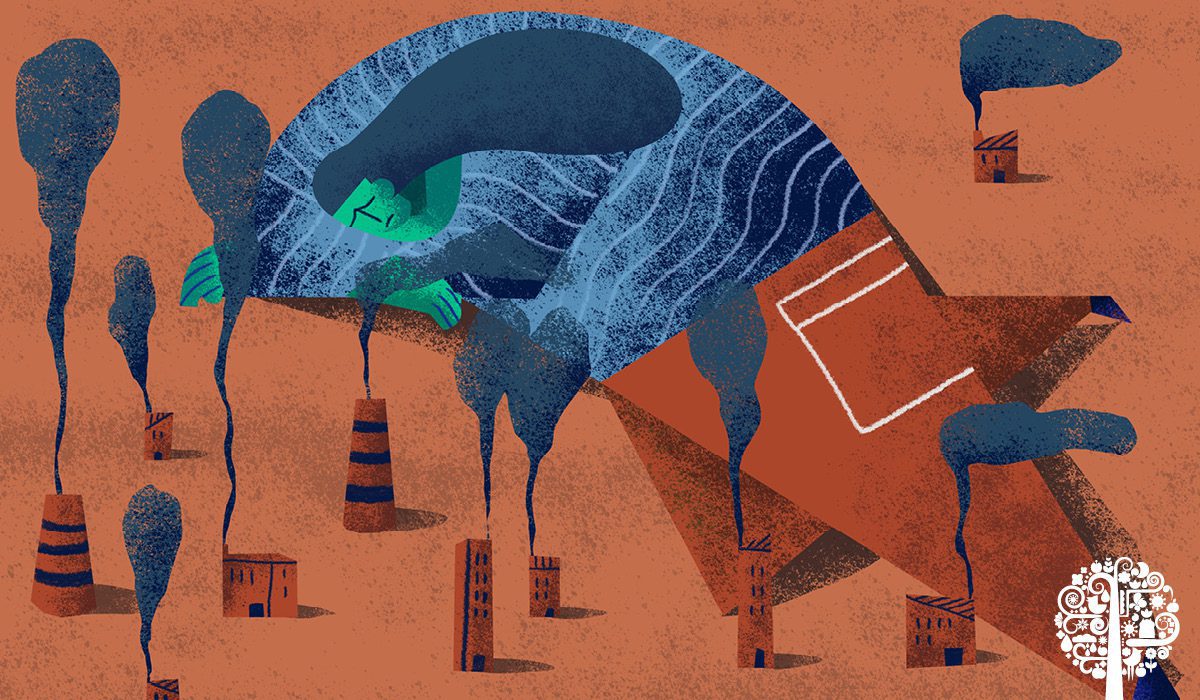These days, it’s hard not to feel stressed about the environment. The world is heating too quickly, and major weather events like hurricanes, flooding, drought, and forest fires are all too common. In some places, heat waves and pollution levels are causing health problems. Food waste and overconsumption are significant issues too. We are at a point where people question whether having kids is a good idea. Eco-anxiety is real, and many of us feel it. So how can we move past it? Acknowledging climate change is essential, but we need to learn how to cope so we can do something about it and live our lives.
Eco-Anxiety
I fully admit that I am sometimes paralyzed with fear over the state of the planet. Terrifying thoughts about water, trees, ecosystems, and the air we breathe run through my mind. It snowballs, and I end up panic-stricken, wondering what kind of life my kids will have.

According to Scientific American, more therapists see patients suffering from eco-anxiety these days. And while the American Psychiatric Association recognizes climate change as a growing threat to mental health, treating it remains a challenge.
A small percentage of therapists specialize in eco-therapy, a form of treatment focusing on environmental awareness and mindfulness. They encourage activism and time in nature to help with feelings of climate despair. And traditional cognitive behavioral therapy helps patients address unhealthy ways of thinking.
We Can Take Action
Corporations and politicians are critical to reversing the effects of climate change. As individuals, we feel there’s nothing we can do to help. But that’s where we’re wrong.
Growing our food is one of the best things we can do for the planet. It also happens to be therapeutic!
Imagine the impact we could make if we all grew a small garden in the backyard, on the balcony or kitchen countertop? And the things we could do if we reduced our household waste and treated water and soil like gold. These are all tiny, individual efforts that make a big difference.
Random Acts of Green
I recently downloaded an app called Random Acts of Green that I think everyone should have. It involves plugging in eco-friendly things you do every day or week, receiving green points for those actions, and seeing what impact you’ve made on the greater community.
For example, are you composting food scraps? That’s good for 320 green points a week. Making good use of the blue bin? Let the app know and get 600 points a week for your recycling efforts.
The little things, like putting your laptop into sleep mode and drinking from a reusable water bottle, earn daily rewards. Reducing your meat consumption is worth a bunch of points and so is growing a vegetable and herb garden.
You can also get points for limiting water usage, air-drying your clothes, and carpooling or walking. There are so many other eco-friendly actions, big and small, that you can register on the app.

Eventually, take your points and spend them in the app’s exclusive shop! Users can exchange points for vouchers and discounts on various green products.
Seeing is Believing
The best part? With every action you record, the app shows you how many greenhouse gas emissions you’ve saved, and these are the numbers that matter. Reducing your carbon footprint is good for the environment and the soul. To see how the efforts you make impact our world is therapy.
Get your friends and family to download the app too! We need to get conversations going and more gardens growing to spark change. Climate change is a severe threat, but not all hope is lost. We can all make a difference on an individual level.